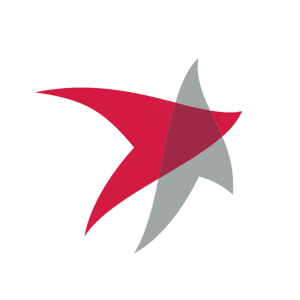Astellas Initiates Phase 3 Clinical Study of Fezolinetant for VMS in Women with Breast Cancer Receiving Adjuvant Endocrine Therapy
Rhea-AI Summary
Astellas Pharma has initiated the HIGHLIGHT 1™ Phase 3 clinical study for fezolinetant, an investigational oral, nonhormonal compound aimed at treating moderate to severe vasomotor symptoms (VMS) in women with stage 0-3 hormone receptor positive breast cancer receiving adjuvant endocrine therapy. VMS, including hot flashes and night sweats, affect up to 97% of breast cancer patients and are a major side effect of adjuvant endocrine therapies. The study is significant as there are currently no approved treatments for moderate to severe VMS in this patient population. Breast cancer is the most common cancer in women globally, with about 2.3 million new cases in 2022, and approximately 77% of breast cancers can be treated with adjuvant endocrine therapies.
Positive
- Initiation of Phase 3 clinical study for fezolinetant, addressing an unmet medical need
- Potential to improve quality of life and treatment compliance for breast cancer patients
- Targeting a large market with 2.3 million new breast cancer cases globally in 2022
- Addressing a side effect that affects up to 97% of breast cancer patients
Negative
- No approved treatments currently available for the target condition
- Potential regulatory hurdles for approval in a sensitive patient population
News Market Reaction 1 Alert
On the day this news was published, ALPMY gained 1.94%, reflecting a mild positive market reaction.
Data tracked by StockTitan Argus on the day of publication.
- HIGHLIGHT 1™ study to evaluate fezolinetant for treatment of moderate to severe vasomotor symptoms in women with stage 0-3 hormone receptor positive breast cancer receiving adjuvant endocrine therapy -
Breast cancer is the most common cancer in women globally, with approximately 2.3 million new cases in 2022.1 Hot flashes and night sweats, also known as VMS, are recognized as the most prominent side effect of adjuvant endocrine therapies used in the treatment of breast cancer. Approximately
Marci English, Vice President, Head of BioPharma Development, Astellas
"VMS can adversely affect quality of life, as well as compliance with treatment, for patients with breast cancer taking adjuvant endocrine therapy. We are excited to get the HIGHLIGHT 1 study underway, as currently there are no approved treatments for moderate to severe VMS that can be used by these patients."
About HIGHLIGHT 1
HIGHLIGHT 1 (NCT06440967) is a randomized, placebo-controlled, double-blind, Phase 3 clinical study to assess the efficacy and safety of fezolinetant for the treatment of moderate to severe VMS in women with stage 0 to 3 hormone receptor-positive breast cancer who are receiving adjuvant endocrine therapy. Approximately 540 participants are planned to be randomized 1:1 to fezolinetant or placebo at up to 100 sites globally. The four coprimary endpoints are change in the frequency and severity of moderate to severe VMS from baseline to weeks 4 and 12. Patients will be treated for 52 weeks with a final evaluation at 55 weeks.
About Fezolinetant
Fezolinetant is an investigational oral, nonhormonal medicine in clinical development for the treatment of moderate to severe vasomotor symptoms (VMS) in women with breast cancer receiving adjuvant endocrine therapy. The safety and efficacy of fezolinetant have not been established in this patient population. VMS are also known as hot flashes or night sweats. Fezolinetant works by blocking neurokinin B (NKB) binding on the kisspeptin/neurokinin/dynorphin (KNDy) neuron, helping restore the balance in the brain's temperature control center (the hypothalamus) to reduce the number and intensity of hot flashes and night sweats.4,5,6 There is no guarantee the agent will receive regulatory approval or become commercially available for the uses being investigated.
About Astellas
Astellas Pharma Inc. is a pharmaceutical company conducting business in more than 70 countries around the world. We are promoting the Focus Area Approach that is designed to identify opportunities for the continuous creation of new drugs to address diseases with high unmet medical needs by focusing on Biology and Modality. Furthermore, we are also looking beyond our foundational Rx focus to create Rx+® healthcare solutions that combine our expertise and knowledge with cutting-edge technology in different fields of external partners. Through these efforts, Astellas stands on the forefront of healthcare change to turn innovative science into VALUE for patients. For more information, please visit our website at https://www.astellas.com/en.
Cautionary Notes
In this press release, statements made with respect to current plans, estimates, strategies and beliefs and other statements that are not historical facts are forward-looking statements about the future performance of Astellas. These statements are based on management's current assumptions and beliefs in light of the information currently available to it and involve known and unknown risks and uncertainties. A number of factors could cause actual results to differ materially from those discussed in the forward-looking statements. Such factors include, but are not limited to: (i) changes in general economic conditions and in laws and regulations, relating to pharmaceutical markets, (ii) currency exchange rate fluctuations, (iii) delays in new product launches, (iv) the inability of Astellas to market existing and new products effectively, (v) the inability of Astellas to continue to effectively research and develop products accepted by customers in highly competitive markets, and (vi) infringements of Astellas' intellectual property rights by third parties. Information about pharmaceutical products (including products currently in development) which is included in this press release is not intended to constitute an advertisement or medical advice.
References
1 World Cancer Research Fund International. Breast cancer statistics. https://www.wcrf.org/cancer-trends/breast-cancer-statistics/.
2 American Cancer Society. Breast Cancer Facts & Figures 2022-2024.
3 Fenlon D, Morgan A, Khambaita P, et al. NCRI CSG Breast Cancer Symptom Working Party. Management of hot flushes in
4 Depypere H, Timmerman D, Donders G, et al. Treatment of menopausal vasomotor symptoms with fezolinetant, a neurokinin 3 receptor antagonist: a phase 2a trial. J Clin Endocrinol Metab. 2019;104:5893-5905.
5 Fraser GL, Lederman S, Waldbaum A, et al. A phase 2b, randomized, placebo-controlled, double-blind, dose-ranging study of the neurokinin 3 receptor antagonist fezolinetant for vasomotor symptoms associated with menopause. Menopause. 2020;27:382-392.
6 Fraser GL, Hoveyda HR, Clarke IJ, et al. The NK3 receptor antagonist ESN364 interrupts pulsatile LH secretion and moderate levels of ovarian hormones throughout the menstrual cycle. Endocrinology. 2015;156:4214-4225.
![]() View original content to download multimedia:https://www.prnewswire.com/news-releases/astellas-initiates-phase-3-clinical-study-of-fezolinetant-for-vms-in-women-with-breast-cancer-receiving-adjuvant-endocrine-therapy-302231193.html
View original content to download multimedia:https://www.prnewswire.com/news-releases/astellas-initiates-phase-3-clinical-study-of-fezolinetant-for-vms-in-women-with-breast-cancer-receiving-adjuvant-endocrine-therapy-302231193.html
SOURCE Astellas Pharma Inc.









